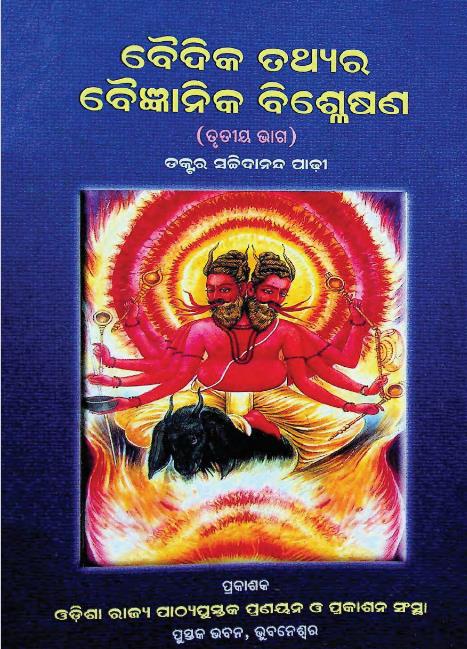Essay on Baidika Tathyara Baigyanika Bislesan by Sachchidanand Padhi
In recent years, philosophical inquiry and scientific analysis have increasingly converged in discourses across cultures and disciplines. One notable contribution to this dialogue is Sachchidanand Padhi’s work, Baidika Tathyara Baigyanika Bislesan, published in 2011. This text reflects deep engagement with both ancient Indian philosophy and contemporary scientific thought, offering a unique lens through which to explore the intersection of spirituality and empirical investigation.
The title itself—Baidika Tathyara Baigyanika Bislesan—indicates a focus on Vedic truths subjected to scientific scrutiny. This interplay between Vedic philosophy and scientific principles invites readers to reconsider longstanding beliefs while grounding them in rational analysis. Padhi navigates through various Vedic texts, extracting insights that resonate with modern scientific inquiry, thereby creating a bridge between ancient wisdom and contemporary understanding.
At the heart of Padhi’s analysis is the premise that Vedic literature is not merely a repository of spiritual teachings but also contains profound observations about nature, consciousness, and existence. He argues that many concepts found in quantum physics and neuroscience echo Vedic thought. For instance, the idea of interconnectedness, prevalent in both Vedic philosophy and modern scientific discourse, serves as a cornerstone for understanding the universe and our place within it.
A significant portion of Padhi’s work is dedicated to the philosophy of consciousness. He posits that Vedic texts provide insights into the nature of consciousness that are remarkably aligned with contemporary debates in psychology and cognitive science. By leveraging both Vedic perspectives and scientific findings, Padhi offers a more comprehensive understanding of consciousness—one that acknowledges both the subjective experiences highlighted by Vedic thought and objective measurements employed in modern science.
Furthermore, Padhi’s methodology is notable for its emphasis on critical reasoning. He does not shy away from challenging traditional interpretations of Vedic texts, advocating for a critical examination that respects both the ancient sources and current scientific frameworks. This critical approach fosters a richer dialogue, promoting a nuanced understanding of spirituality that acknowledges scientific rigor alongside philosophical wisdom.
In addition, Padhi draws attention to the ethical and moral implications of scientific advancements as illuminated by Vedic principles. He suggests that without a philosophical foundation, scientific progress can lead to ethical dilemmas and existential crises. By integrating ethical considerations derived from Vedic teachings, he advocates for a science that nurtures humanity and respects the holistic nature of existence.
Baidika Tathyara Baigyanika Bislesan stands as a testament to the enduring relevance of Vedic philosophy in a rapidly advancing scientific world. Padhi’s work encourages readers to seek wisdom in both ancient scriptures and modern scientific inquiry, fostering an integrative approach that honors both dimensions.
In conclusion, Sachchidanand Padhi’s Baidika Tathyara Baigyanika Bislesan represents a significant effort to synthesize Vedic philosophy with contemporary scientific understanding. His analysis not only enriches the discourse surrounding spirituality and science but also inspires a new generation of thinkers to explore the profound questions of existence with an open mind. By doing so, Padhi invites us to reimagine the potential for unity between the worlds of belief and rational inquiry—an endeavor that has never been more essential in our quest for knowledge and understanding.
Books Info
| Books name | Baidika Tathyara Baigyanika Bislesan/ବୈଦିକ ତଥ୍ୟର ବୈଜ୍ଞାନିକ ବିସ୍ଲେସଣ |
| Author | Sachchidanand Padhi |
| No Of pages | 200 |
| Publisher | NA |
| Publication | 2011 |
| Printed At | Print-Tech Offset Pvt.Ltd |
| Distributor | NA |

